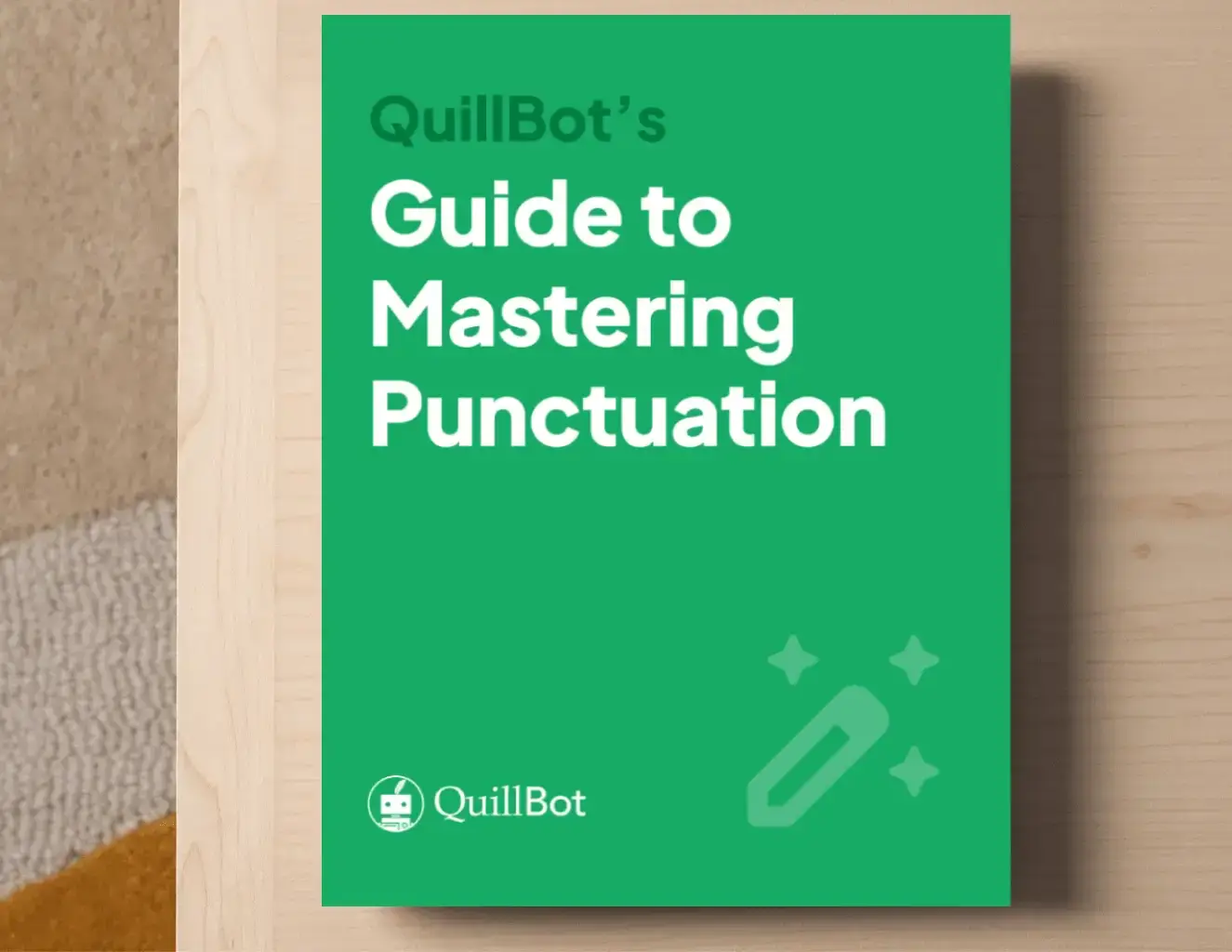“Him and I” is incorrect, but you can use “him and me.” “Him” and “me” are both object pronouns, so they can be used together when you need the objective case (which includes the dative case and the accusative case).
- Dative case: The neighbors play volleyball with him and me every Saturday.
- Accusative case: They asked him and me to water their garden during their vacation.
The subject pronoun “I,” which is one of the nominative case pronouns, cannot be combined with the object pronoun “him.” “I” can only be a subject or a predicate nominative.
The QuillBot Grammar Checker can instantly find and fix errors—such as “him and I”—in your writing.
Read this FAQ: Is it him and I or him and me?
It can be you and me or you and I depending on the sentence. “You and I” is correct for a sentence subject because it’s in the nominative case (e.g., “You and I should have lunch”).
“You and me” is correct when you need the accusative case for a direct object or the dative case for an indirect object or object of a preposition (e.g., “The restaurant reserved a special table just for you and me”).
Use the subject pronoun “I” for nominative case and the object pronoun “me” for the accusative/dative case (aka the objective case).
Have you tried QuillBot’s free Grammar Checker for help with pronouns? It can show you which pronouns are correct in any piece of writing.
Read this FAQ: Is it you and me or you and I?
It can be “this is she” or “this is her” depending on the context. In formal contexts—such as answering the phone at work—use a nominative case pronoun for a predicate nominative after “is.”
- Caller: “Hi, I’m returning a call from Dr. Jones.”
- Sarah: “This is she.”
In everyday situations, though, “this is her” is perfectly fine (“My grandmother sent me this photograph, and this is her next to the tree”).
The QuillBot paraphrasing tool is an excellent resource when you’re exploring formal and informal ways to use pronouns.
Read this FAQ: Is it this is she or this is her?
The choice of you’ll or y’all depends on the meaning of your sentence.
- You’ll is a contraction that means “you will” (e.g., “You’ll love the new restaurant”).
- Y’all is a contraction that means “you all” (e.g., “Y’all are welcome anytime“).
QuillBot’s Grammar Checker can help you avoid mistakes with “you’ll” and “y’all” in your writing.
Read this FAQ: Is it you’ll or y’all?
Outside can be an adjective or an adverb. It can also function as a preposition or a noun.
- The company is looking at only outside candidates to fill the role. [adjective]
- The children always play outside after school. [adverb]
- Please wait outside the building until 7 p.m. [preposition]
- They want us to paint the outside of the house. [noun]
A free QuillBot grammar check can help you use words like “outside” correctly.
Read this FAQ: Is outside an adjective or adverb?
No, since is not a coordinating conjunction, but it can be used as a conjunction and be classified as a subordinating conjunction (e.g., “I normally shop there since it’s a bit closer,” “You’ve loved these cookies since you were a child”).
QuillBot’s free Paraphraser will help you find alternative ways of formulating clauses beginning with the conjunction “since.”
Read this FAQ: Is since a coordinating conjunction?
It is ever since, not every since (e.g., “We went to that restaurant on our first anniversary, and we’ve been going there every year ever since“).
Have you tried QuillBot’s free Grammar Checker? It will help you pick up typos like “every since” instead of “ever since” in your writing.
Read this FAQ: Is it ever since or every since?
It is make sense, not make since (e.g., “I don’t understand that sentence; it doesn’t make sense to me,” “Sure, I understand; that makes sense”).
The word since typically refers to the starting point of a time period that lasts up to the time of speaking (e.g., “I haven’t made peanut butter cookies since my kids were little”).
QuillBot’s free Grammar Checker will help you pick up typos like “since” instead of “sense” in your writing.
Read this FAQ: Is it make sense or since?
The adjective roundabout means “indirect” or “unnecessarily complicated” (e.g., “That was a very roundabout way of saying no”).
In some varieties of English, such as British English, roundabout is also a noun meaning “traffic circle” or “playground merry-go-round.”
Have you tried QuillBot’s free Grammar Checker? You can use it to check that you’re using the word “roundabout” correctly in your writing.
Read this FAQ: What does roundabout mean?
You say something is about time when you think that it should have already happened, but it hasn’t happened (e.g., “It’s about time they fixed this road; it’s full of potholes”).
If you say something was “about time,” you think that it should have happened much sooner than it did (e.g., “It was about time she won an Oscar; she should have won at least three by now”).
QuillBot’s free Grammar Checker will help you to use idiomatic phrases like “about time” correctly in your writing.
Read this FAQ: What does about time mean?
